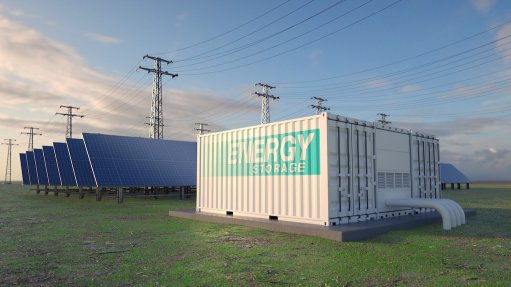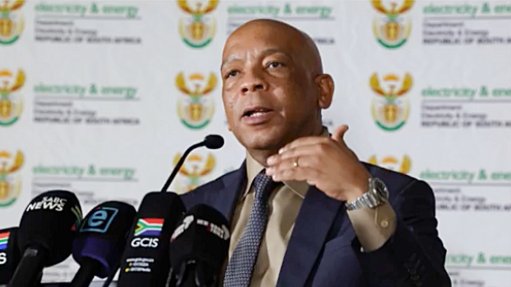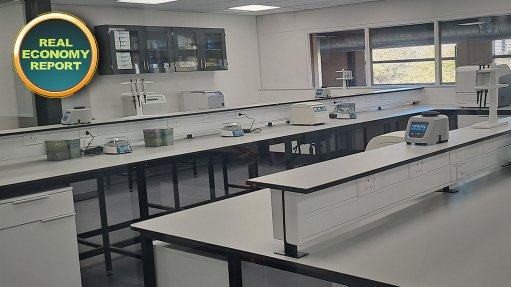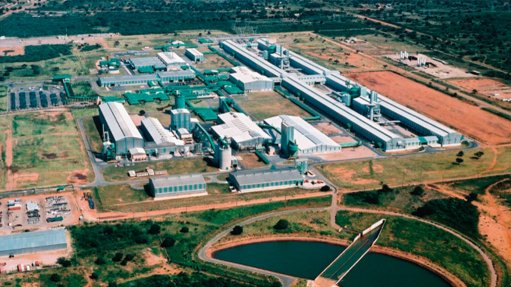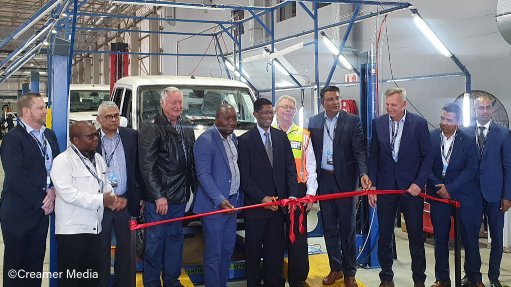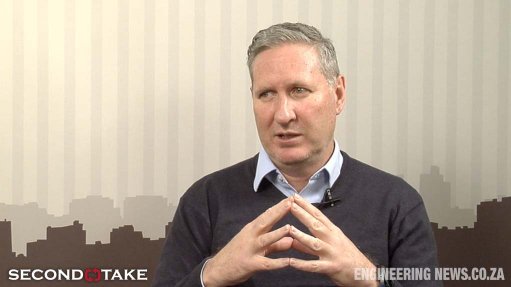Resource-rich countries facing a double transition
Resource-rich countries face a double transition – the transition in their energy supplies and the transition in their mining sectors, German Institute for International and Security Affairs senior associate Melanie Müller has said.
The growing drive to confront the issues of climate change and other environmental dilemmas was gaining traction, manifesting as a 'green energy transition’, denoting a pivotal shift from energy sources reliant on fossil fuels to those harnessed from renewable origins such as solar and wind, she pointed out this week during a webinar hosted by The South African Institute of International Affairs (SAIIA).
However, to orchestrate this sweeping global transformation, a diverse array of resources, particularly minerals such as copper, lithium and cobalt, have become essential. Notably, the bulk of these resources are chiefly procured from regions situated in the global south.
SAIIA has launched a special issue of the South African Journal for International Affairs (SAJIA) titled, ‘The energy transition and green mineral value chains: Challenges and opportunities for Africa and Latin America’.
Müller was guest editor of the special issue, which focuses on the global just energy transition and merges various viewpoints on the green energy transition and mineral value chains from Latin America and Africa.
The special issue of the SAJIA attempts to collate various viewpoints concerning the green energy transition and the intricate web of mineral supply chains across Latin America and Africa. The articles in the journal address the challenges encountered by nations on these two continents, while also scrutinising the potential opportunities that may also unfold as part of these far-reaching changes.
Müller explained that, to uncover the views of players from the global south, the risks and opportunities that stakeholders in those regions encounter needed to be explored, owing to the dual transition and the escalating global geopolitical rivalry that defines the current era.
She said that, until now, there had been limited efforts for intensive international cooperation between the global north and south to bolster value creation or alternative forms of production and energy.
Current programmes such as the just energy transition partnerships were preliminary steps towards a comprehensive cooperative approach to a global energy transition. However, the requirements of raw material-producing nations were often inadequately addressed in global climate change mitigation strategies, Müller said.
She added that these deficiencies created an imbalance in the present concept of a global energy transition, but that they also provided potential for the development of more innovative and, hence, more promising policy approaches. She said the States in the global south could consider these when discussing these matters at a national level.
Müller noted that initiatives for implementing green industrialisation programmes, with a focus on the future of the minerals sector, were crucial as this reduced nation States in the global south being dependent on global uncertainties and encouraged all parties to avoid quick fixes. It also provided opportunities to formulate progressive reform programmes for the minerals sector.
Müller said that, to be successful, the sustainable energy transition needed to be viewed holistically, acknowledging the mutual dependence of raw material importing and exporting countries, and the specific challenges and opportunities concerning their minerals sector in relation to national development interests.
She explained that a sustainable energy future would necessitate reframing 'green energy' within a more integrated structure, where sustainability is more comprehensively incorporated.
Müller noted that this ultimately led to the question of how to execute global sustainability standards, which nations worldwide have pledged to through the adoption of the United Nations Sustainable Development Goals (SDGs). With the SDG agenda, nations globally have committed to implementing these goals, although progress varies across countries.
Meanwhile, the pressure on resource-rich countries, especially those in the raw materials sector, is intensifying through the introduction of national laws or discussions around the implementation of a European law to regulate sustainability and due diligence in supply chains.
While this aligned with the interests of many global south States, which had long advocated for supply chain regulation concerning sustainability and human rights, it added to the existing geopolitical and economic challenges faced by commodity exporters, Müller said.
Comments
Press Office
Announcements
What's On
Subscribe to improve your user experience...
Option 1 (equivalent of R125 a month):
Receive a weekly copy of Creamer Media's Engineering News & Mining Weekly magazine
(print copy for those in South Africa and e-magazine for those outside of South Africa)
Receive daily email newsletters
Access to full search results
Access archive of magazine back copies
Access to Projects in Progress
Access to ONE Research Report of your choice in PDF format
Option 2 (equivalent of R375 a month):
All benefits from Option 1
PLUS
Access to Creamer Media's Research Channel Africa for ALL Research Reports, in PDF format, on various industrial and mining sectors
including Electricity; Water; Energy Transition; Hydrogen; Roads, Rail and Ports; Coal; Gold; Platinum; Battery Metals; etc.
Already a subscriber?
Forgotten your password?
Receive weekly copy of Creamer Media's Engineering News & Mining Weekly magazine (print copy for those in South Africa and e-magazine for those outside of South Africa)
➕
Recieve daily email newsletters
➕
Access to full search results
➕
Access archive of magazine back copies
➕
Access to Projects in Progress
➕
Access to ONE Research Report of your choice in PDF format
RESEARCH CHANNEL AFRICA
R4500 (equivalent of R375 a month)
SUBSCRIBEAll benefits from Option 1
➕
Access to Creamer Media's Research Channel Africa for ALL Research Reports on various industrial and mining sectors, in PDF format, including on:
Electricity
➕
Water
➕
Energy Transition
➕
Hydrogen
➕
Roads, Rail and Ports
➕
Coal
➕
Gold
➕
Platinum
➕
Battery Metals
➕
etc.
Receive all benefits from Option 1 or Option 2 delivered to numerous people at your company
➕
Multiple User names and Passwords for simultaneous log-ins
➕
Intranet integration access to all in your organisation









